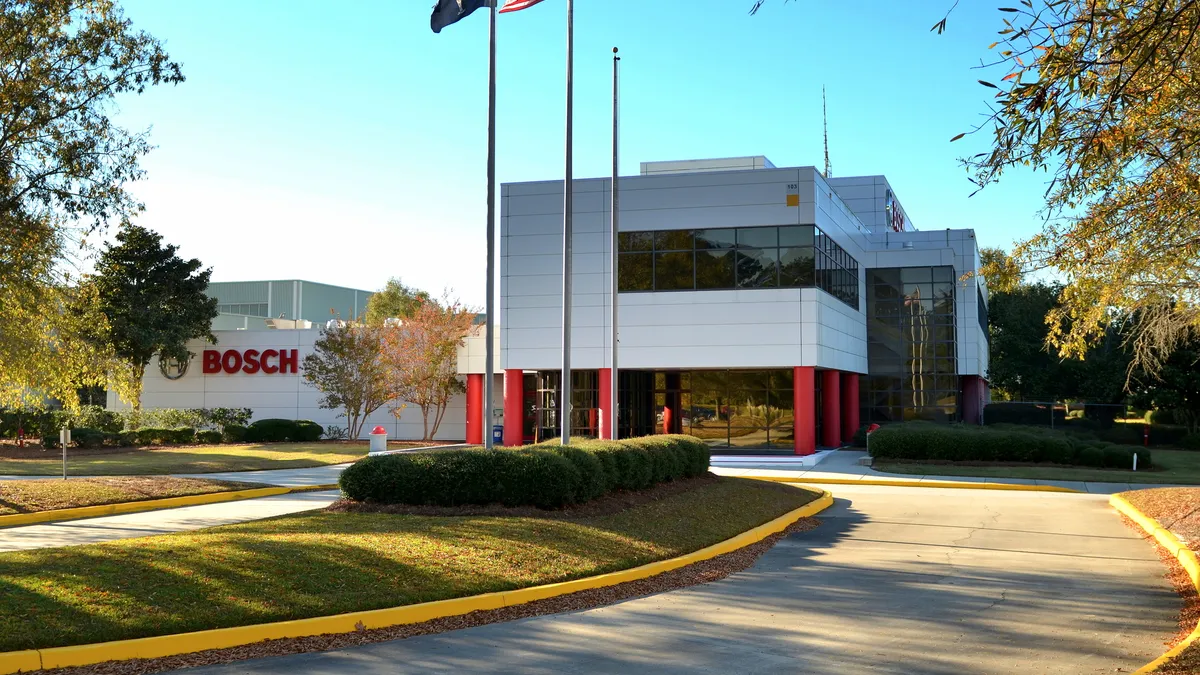CHARLESTON, S.C. — How do you make a new fuel injector every 3.5 seconds?
The answer is apparent when touring the North Charleston outpost of manufacturer Bosch. The plant, which specializes in producing automotive parts and systems, houses an array of advanced machinery. Mounted video feeds show the precise fastening of assembly components, and robotic arms move like clockwork.
But this pace of production also depends on employees who are not afraid to problem solve.
"Of course we have the pandemic," said Bernard Reese, director of diesel manufacturing at Bosch in Charleston, "and so what we're seeing now is as we try to ramp back up and make more products with this high demand we're seeing, the availability of the people is not there. It's a struggle to fill all of the open spots that we have right now."
Some 1,560 associates work out of the facility, and Bosch is running into the same problem that employers across the U.S. face going into the third quarter of 2021: there are not enough workers to meet business demand.
According to data from the U.S. Bureau of Labor Statistics' Job Openings and Labor Turnover Survey, manufacturers recorded 870,000 openings in April, the highest number on record dating back to 2000. Preliminary figures for May show a slight decline to 854,000 openings, but that is still well above levels for 2019 and 2020.

Data for May 2021 are preliminary.
Bosch has responded to the talent crunch in part by looking at the situation more flexibly, and that includes using temporary workers, said Doreen Poehlitz, HR director. Hiring has continued for positions across the board, including for technicians and engineers. "I don't see that tapering down," she said. "All indicators are that it will be consistent."
The company also continues to rely on apprenticeships, a talent pipeline strategy it has utilized in Charleston since 1976. The format has its origins in Germany, where Bosch was founded and is headquartered. Bosch's Charleston plant is on its 36th apprenticeship class, consisting of 14 apprentices.
Apprentices come from a variety of backgrounds and experience levels, Poehlitz said, ranging from recent high school graduates to mid-career employees looking to shift paths. Bosch also participates in a local youth apprenticeship program as part of a collaboration between local high schools and Trident Technical College, a public community college in Charleston.
Bosch apprentices have gone on to have long careers with the firm. Martin Majer, group leader of the facility's high pressure gasoline injector division, joined Bosch as an apprentice at age 15 in his native Germany. He was transferred to the U.K. and then came to Charleston in 1984, moving from associate to group leader in that timeframe.
"I absolutely love the apprenticeship program because it sets people up for the rest of their life," Majer said. "In Europe, any job you want to perform, you have to go through [an] apprenticeship program … but the nice thing is, once they are done, they really know how to do their job the correct way. That is the plus we have here in Charleston."
The facility has graduated more than 400 apprenticeship graduates since the program started. Participants are paid and receive credentials from both Trident Technical College and the U.S. Department of Labor.
Bosch's country of origin also plays a role in training associates through the Charleston facility, Majer said. When the company decides to begin a new product line, it will send U.S. associates such as those in Charleston to train in Germany on the same systems that will be brought over to the U.S. Bosch said it expects associates to complete an international assignment in order to reach certain ranks, such as director level.
"When they came back, they looked at the work they do so differently."

Martin Majer
Group leader, high pressure gasoline injector division
For example, ahead of the company's recent introduction of its HDEV 6 fuel injector, Majer took a group of 15 associates to Bamberg, Germany — Bosch's lead plant for fuel injectors. There, he said, the company paired them with technicians for direct training on how to run the new assembly line.
The experience can be eye-opening for employees, Majer said. Some of the associates had never been on an airplane, and others had never traveled outside the U.S. In addition to getting necessary training, such trips allow employees to make contacts with their global counterparts and experience a new culture.
"For a lot of people that went with me to Germany, when they came back, they looked at the work they do so differently," Majer said, "and a lot of them still have great contacts with the people in Germany."
Bosch also recently introduced a performance-based pay model for associates in which they can advance by going through job training and enhancing their skills, Poehlitz said. The idea is to take a skill-based approach to development rather than a task-based one, she explained. The company also has focused on offering transitional training to associates as the technology used inside the plant transforms.
Bosch hopes its adjustments will allow it to keep up with demand. "While it is challenging, we have to meet those demands," Poehlitz said, "and I think we have the opportunity to do so because we're looking at it creatively."





















